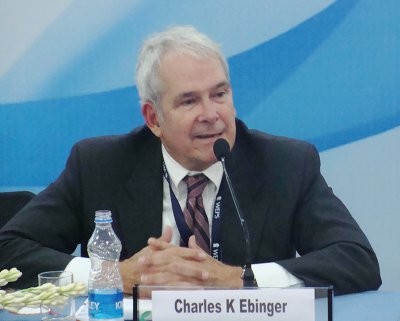1) U.S. global power/influence will have to be shared with other emerging powers such as India and China.
2) Asia will experience a rapid growth in energy demand as the population rises. This demand will have to be met with fossil fuels.
3) Global carbon emissions will continue to rise while arguments to find a solution are delayed and money is invested in weak solutions that can't actually fix the problem.
They make the point that while the American economy is in a bad place, the gas and coal industries are actually booming at higher levels than we've seen in decades. Ebinger and Massy suggest that we attempt to become a main fuel exporter to countries like India and China that will require a huge demand of fossil fuels in the next 10-20 years. They argue that we need to reduce the restrictions on coal and oil exports to make the largest profit we can off of Asia's monster energy demands. Many people will be opposed to this due to the environmental implications, but Ebinger and Massy claim that if these exports are taxed properly, a vast revenue will be generated to support clean energy solutions. Besides, Asia will need to receive these fossil fuels from someone. Better the U.S. if we're taxing our exports than countries like Russia or Australia who have a goal of sole profit. I find this to be an interesting solution to our current environmental situation, but it makes a lot of sense. My concern would be that greed would get in the way of the carbon-tax system, but if all the money was handled responsibly, this solution would put the Earth on a path to a much cleaner environment in the future.
Charles K. Ebinger
Kevin Massy
Links:
http://www.brookings.edu/research/papers/2013/01/energy-and-climate-black-to-gold-to-green?cid=gADs_BBBS_Search-BBBS-Policy-US_ObamaEnergyPolicy_20025896075&gclid=COOfi_nH47UCFWhnOgod6EwAlQ
http://southasia.oneworld.net/news/south-asia-needs-to-build-energy-cooperation-says-expert#.UTUXBzGdb_U
http://www1.georgetown.edu/sfs/msfs/117080.html


No comments:
Post a Comment